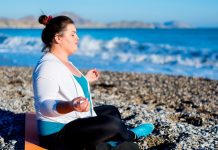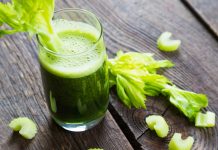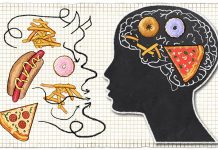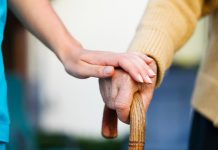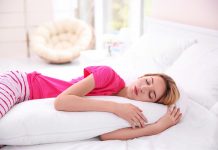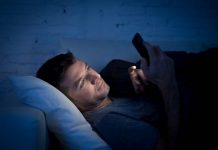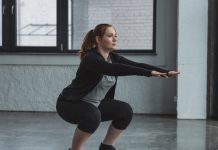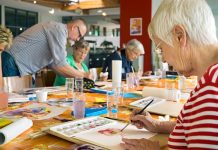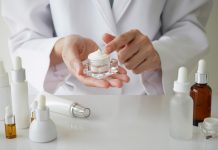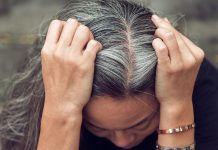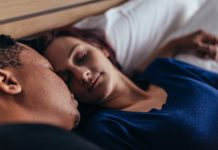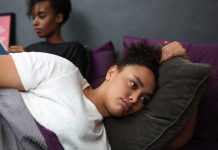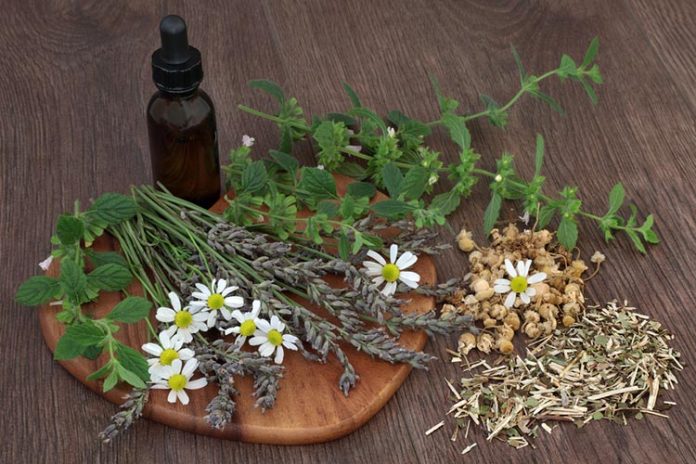Looking for a good night’s sleep? Try these natural sleep remedies and find insomnia relief without the drugs.
Sip warm milk and honey
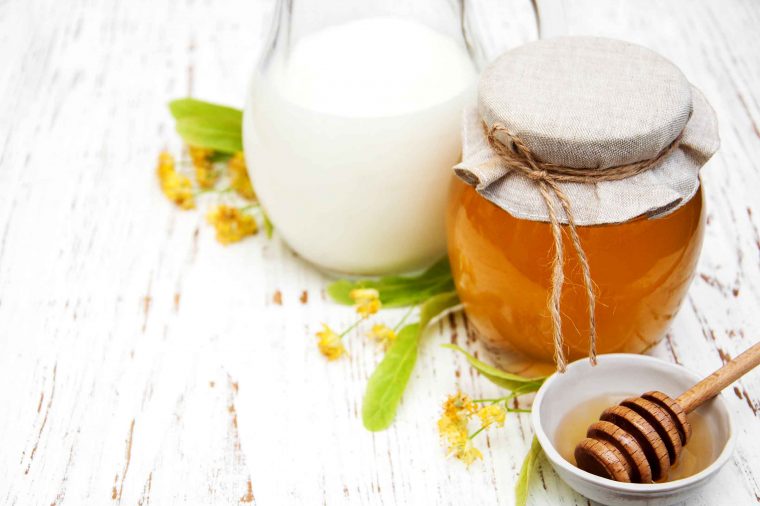
Forget the glass of wine—winding down the day with a warm mug of milk and honey is one of the better natural sleep remedies. Milk contains the sleep-inducing amino acid tryptophan, which increases the amount of serotonin, a hormone that works as a natural sedative, in the brain. Carbs, like honey, help transmit that hormone to your brain faster. If you’re hungry for a snack, a turkey sandwich will deliver that power-combo of tryptophan and carbohydrates; or try a banana with milk to get some vitamin B6, which helps convert tryptophan to serotonin. Looking for more delicious insomnia cures? Snack on these 16 foods that can help you sleep better.
Practice cognitive behavioral therapy
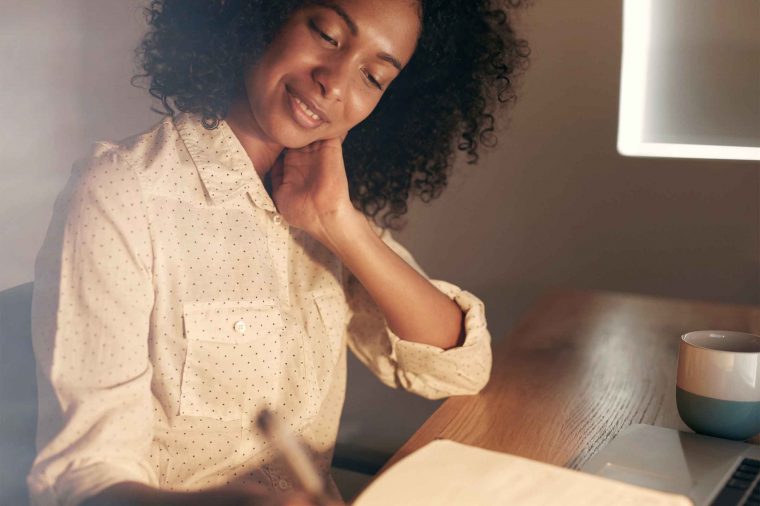
Cognitive behavioral therapy (CBT) usually focuses on discovering and changing the thoughts or feelings that trigger depression and stress but it can be a natural insomnia cure, too. Research has found that CBT can retrain your body and mind for faster, deeper sleep. In a Harvard University study of 63 insomniacs, CBT was more effective than prescription sleeping pills; it cut the time it took for participants to fall asleep in half and improved sleep quality by 17 percent. You can practice CBT at home, too. The National Sleep Foundation recommends keeping a sleep diary of when you go to bed and wake up, as well as banishing daytime naps. Instead, adopt a regular sleep schedule; that means going to bed and waking up at the same time every day.
Create a sleep-friendly environment
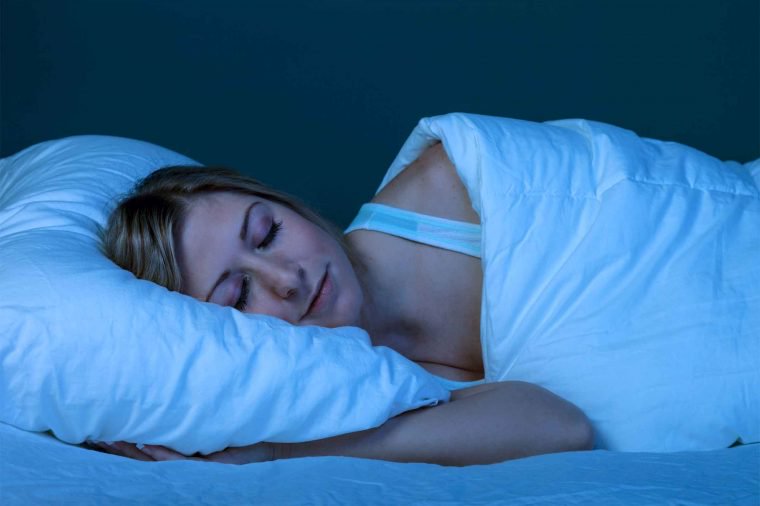
For those with insomnia, a calm, relaxing sleep environment is imperative for uninterrupted slumber. Perhaps one of the most effective natural sleep remedies is removing digital clocks and other electronics that glow, such as cell phones and laptops; even if you don’t wake up in the middle of the night, the pings from your cell phone or email can disrupt your sleep cycle. Go even further by making sure your shades are tightly drawn against any outdoor lights. For maximum comfort, the National Sleep Foundation recommends a room temperature between 60 and 67 degrees. Make sure your room is the best environment for deep sleep by stealing these things the bedrooms of all good sleepers have in common.
Manage stress with exercise
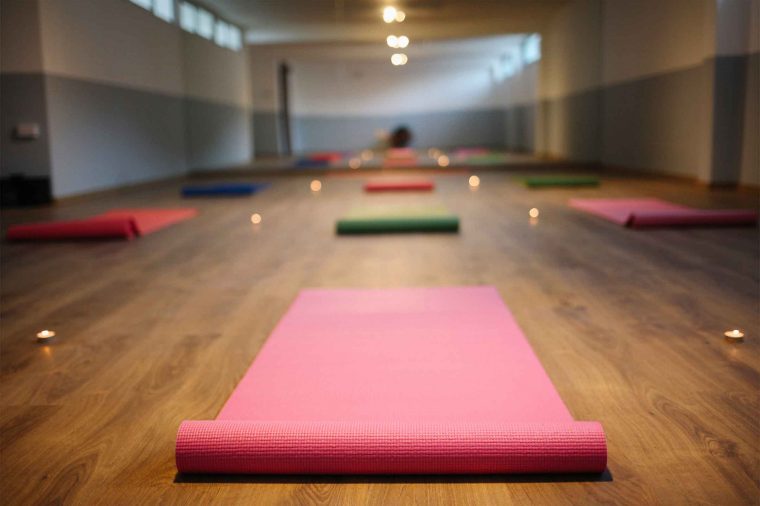
If anxiety is keeping you up at night, try these natural sleep remedies: yoga, meditating, or writing in a journal before bed. Tai chi is another powerful sleep-inducing (and stress-reducing!) exercise; in a 2004 Oregon Research Institute study, a tai chi routine right before bed helped people fall asleep 18 minutes faster and get 48 minutes more nightly sleep. In addition to adopting sleep-inducing habits, avoid these 11 “harmless” habits that are causing your insomnia.
Adopt a bedtime ritual
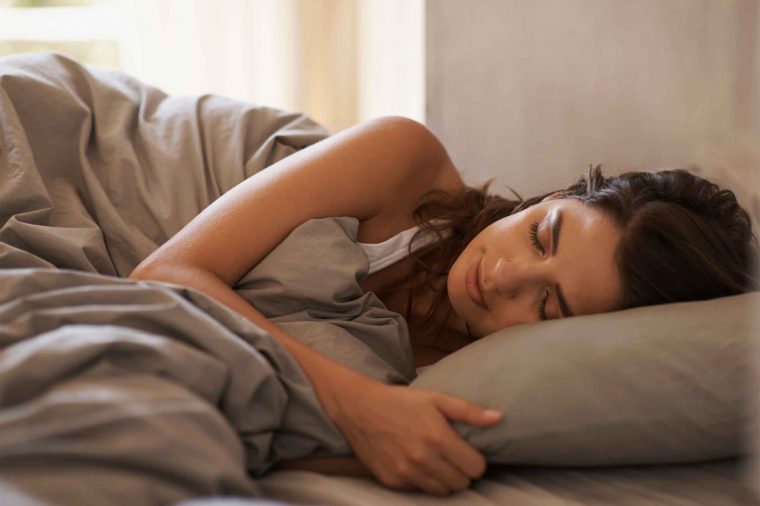
If you always seem to get a poor night’s sleep, it may be because you’re not following a bedtime ritual. One of the easiest natural sleep remedies: Make it a priority to go to bed and wake up at the same time every day. Introducing nightly habits like reading in bed or listening to music will also help to quiet your brain for the day and prepare it for sleep. Try setting your phone or iPod on a timer and nod off to your favorite soothing melodies. In one Taiwanese study, music helped 60 problem-sleepers fall asleep faster and snooze more soundly. Here are some more relaxation techniques to help you wind down for sleep.
Brew herbal tea
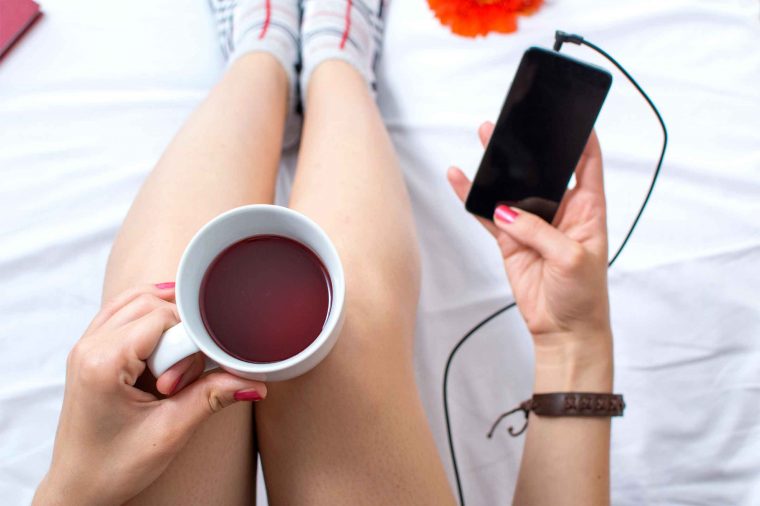
You already know the most common drinks to help you sleep, but for an even more effective herbal insomnia cure, try valerian tea. This herb is found in health food stores, at pharmacies, or from a qualified herbalist, and when brewed into tea, it can reduce the time it takes to fall asleep and produce a deep, satisfying rest. Also taken in capsule form or as a tincture, this organic sleep aid helped about one in 13 insomniacs enjoy a longer night’s sleep (with fewer middle-of-the-night wake-ups) in a Norwegian study. And as for insomnia due to menopause, there’s more good news: 30 percent of menopausal and postmenopausal women got better sleep after drinking valerian tea, according to a recent study from Iran. Find out what your sleep position says about your personality.
Take a hot bath
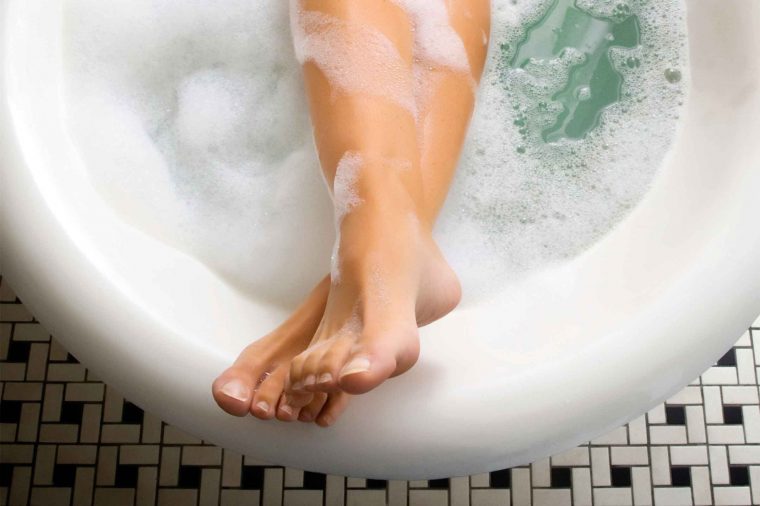
Turns out, you’re never too old for a bubble bath, especially when it comes to natural sleep aids. A study published in the journal Sleep found that women with insomnia who took a hot bath for about 90 to 120 minutes slept much better that night than those who didn’t. Temps for ideal bath water range from 98 to 100 degrees F, but the Goldilocks temperature hovers at around 112 degrees, according to the Wall Street Journal.
Try melatonin
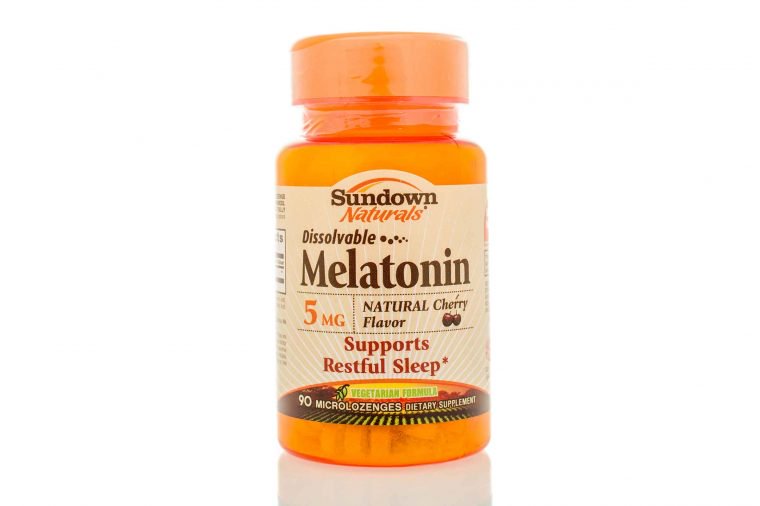
Melatonin, a hormone produced in the brain, may also help you fall asleep faster when taken as a supplement. Triggered by the absence of light, this natural sleep aid regulates the body’s internal clock, ensuring we are tired at night and mentally and physically alert during the day. A recent study published in the journal Critical Care found that melatonin improved sleep quality and reduced nighttime disturbances in its healthy subjects, and experts from Israel’s Hadassah Medical Center discovered that melatonin supplements increased sleep time by 13 minutes. Supplements can be found in health food stores and pharmacies, but read up on the things you need to know before taking melatonin for sleep and talk to your doctor about whether melatonin is a suitable natural insomnia cure for you. Don’t miss the 10 best vitamins for sleep.
Drink passionflower tea
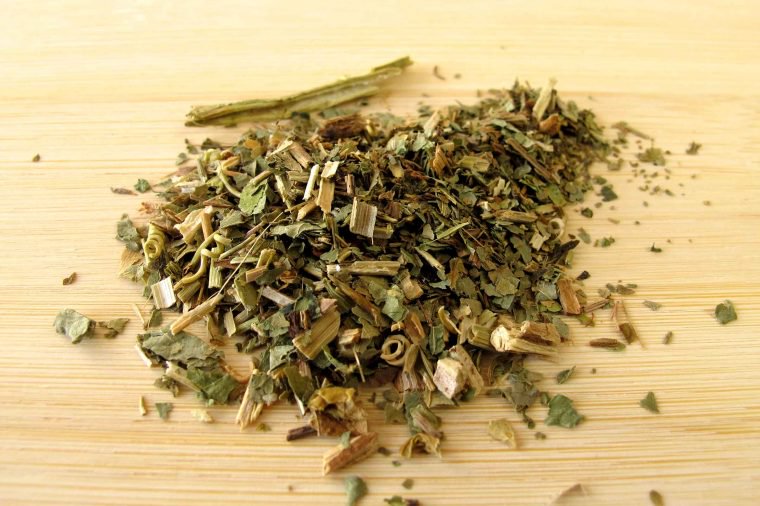
One cup of this tropical tea nightly improved sleep quality in a recent study from Australia’s Monash University. Herbalists also recommend a cup of chamomile before bed; chamomile contains the flavonoid apigenin, which has a calming effect on the brain. Check out the most bizarre insomnia cures people have used throughout history.
Book a light therapy session

Natural light is critical for our health and well-being. Bright light therapy, provided by your dermatologist or reputable light box manufacturers online, can reset your body clock by gradually shifting sleep patterns earlier or later, leading to better sleep. Check out these other benefits of light therapy. In a 2004 study, daily use of light-therapy lamps helped insomniacs fall asleep faster and sleep longer. You can also try going outdoors around noon; it will retune your circadian rhythm even if you’re stuck inside for most of the day.
Check your medications

Many medications can interfere with sleep and turn into sleep aids that actually cause insomnia, including beta-blockers, thyroid medication, decongestants, medications containing caffeine, and certain antidepressants. If you’re having trouble sleeping, talk to your doctor about changing dosages or medications. Now, find out the 8 little changes you can make to sleep better in just one day.
Source: RD



